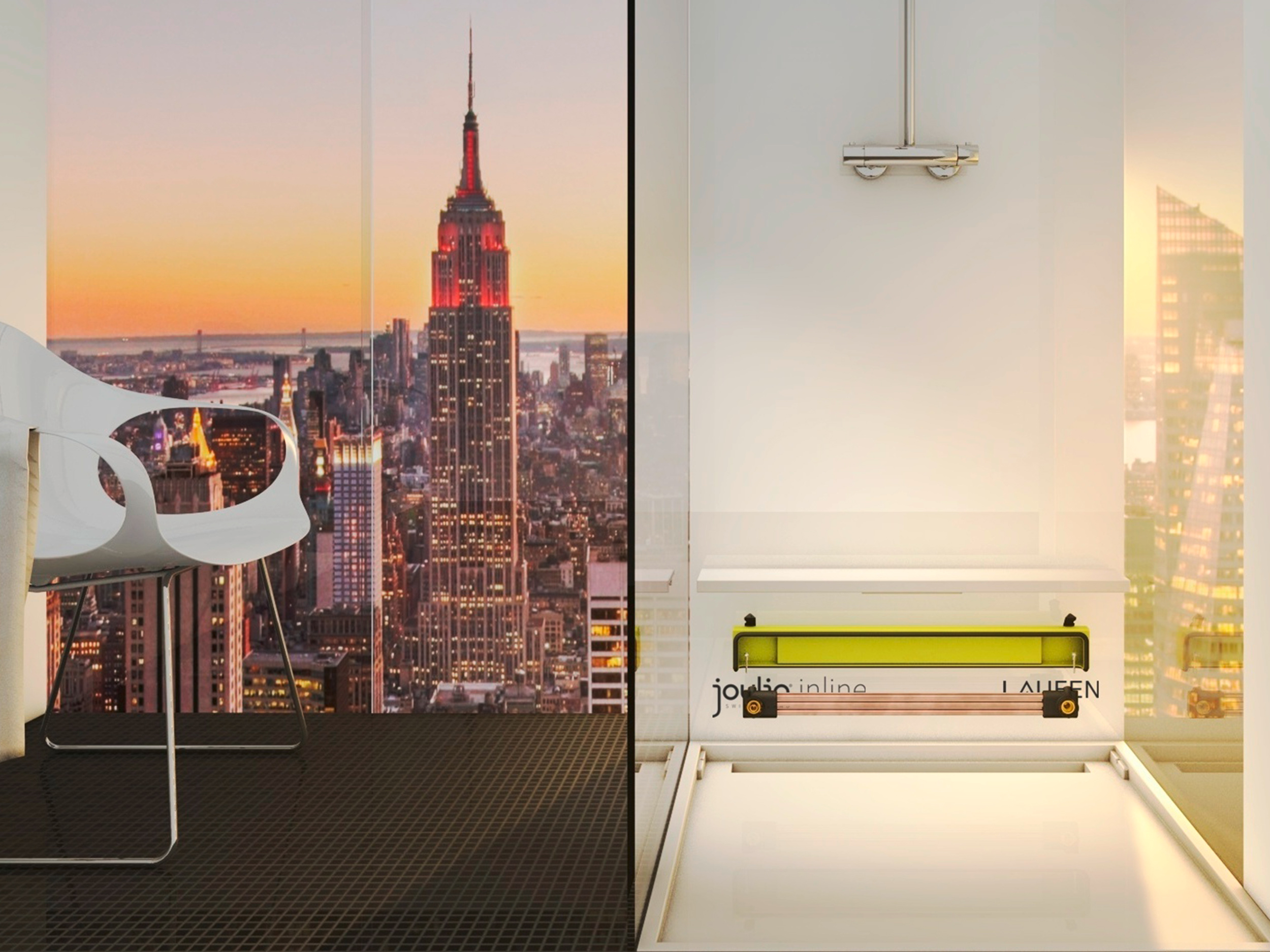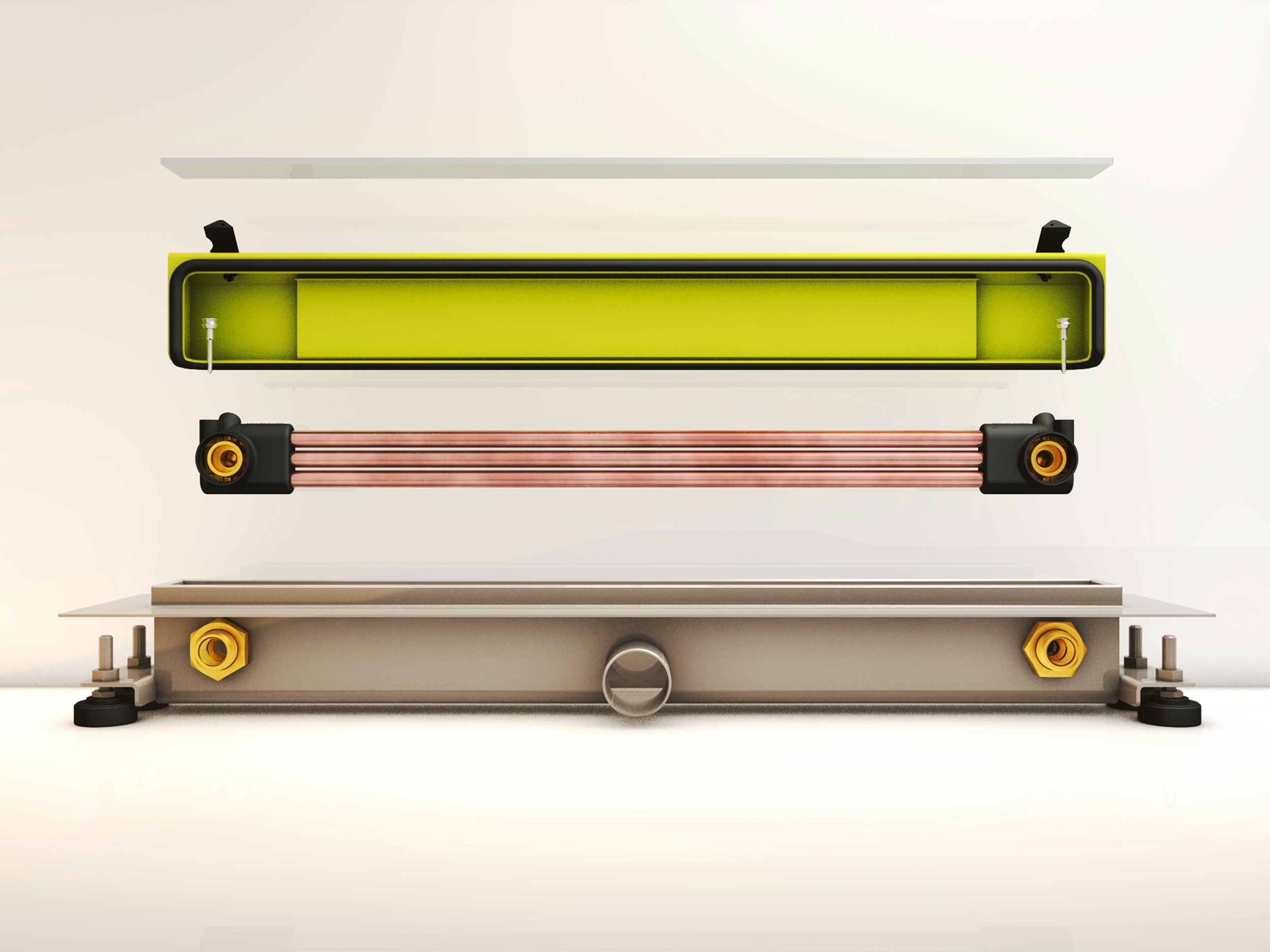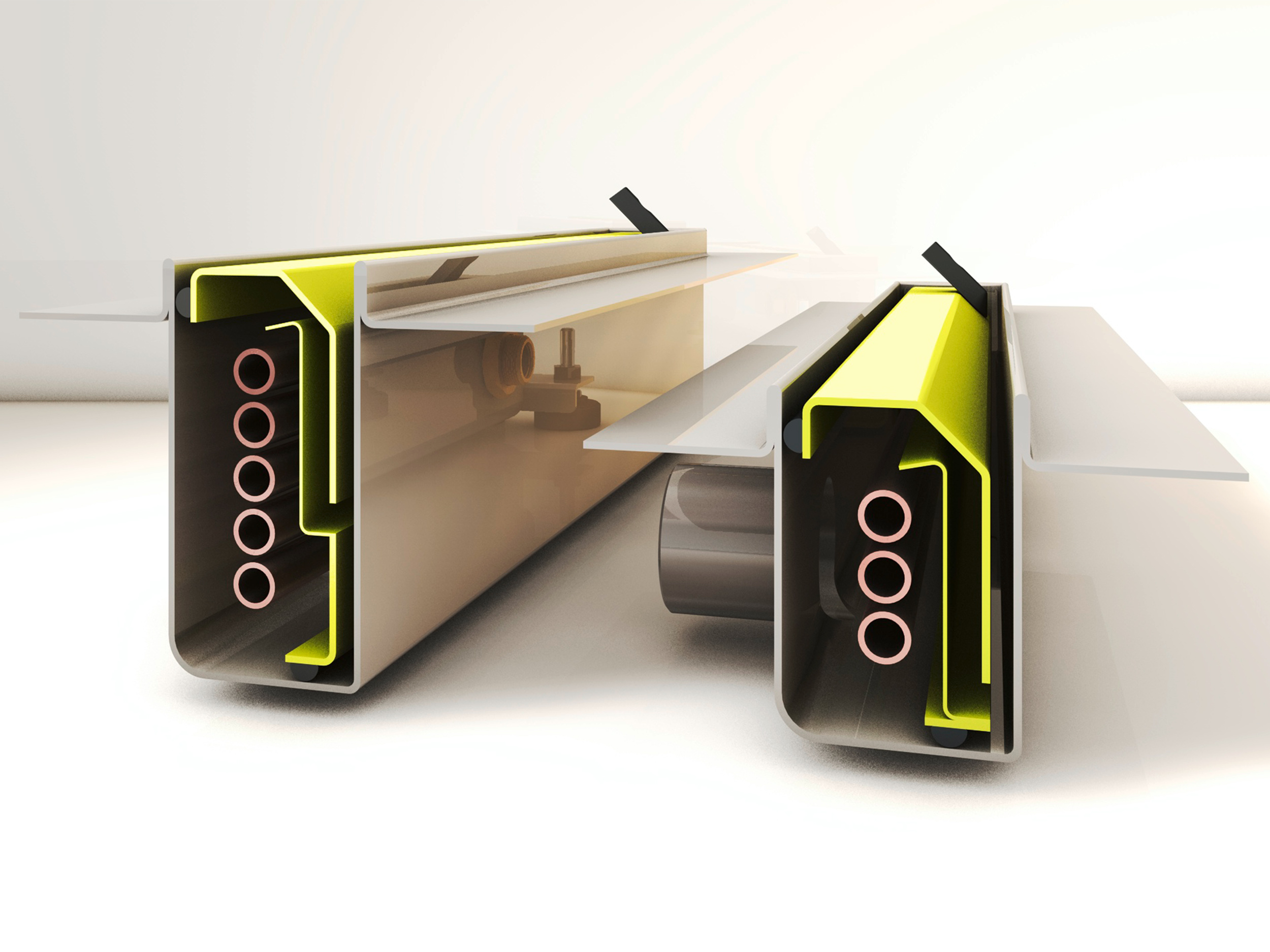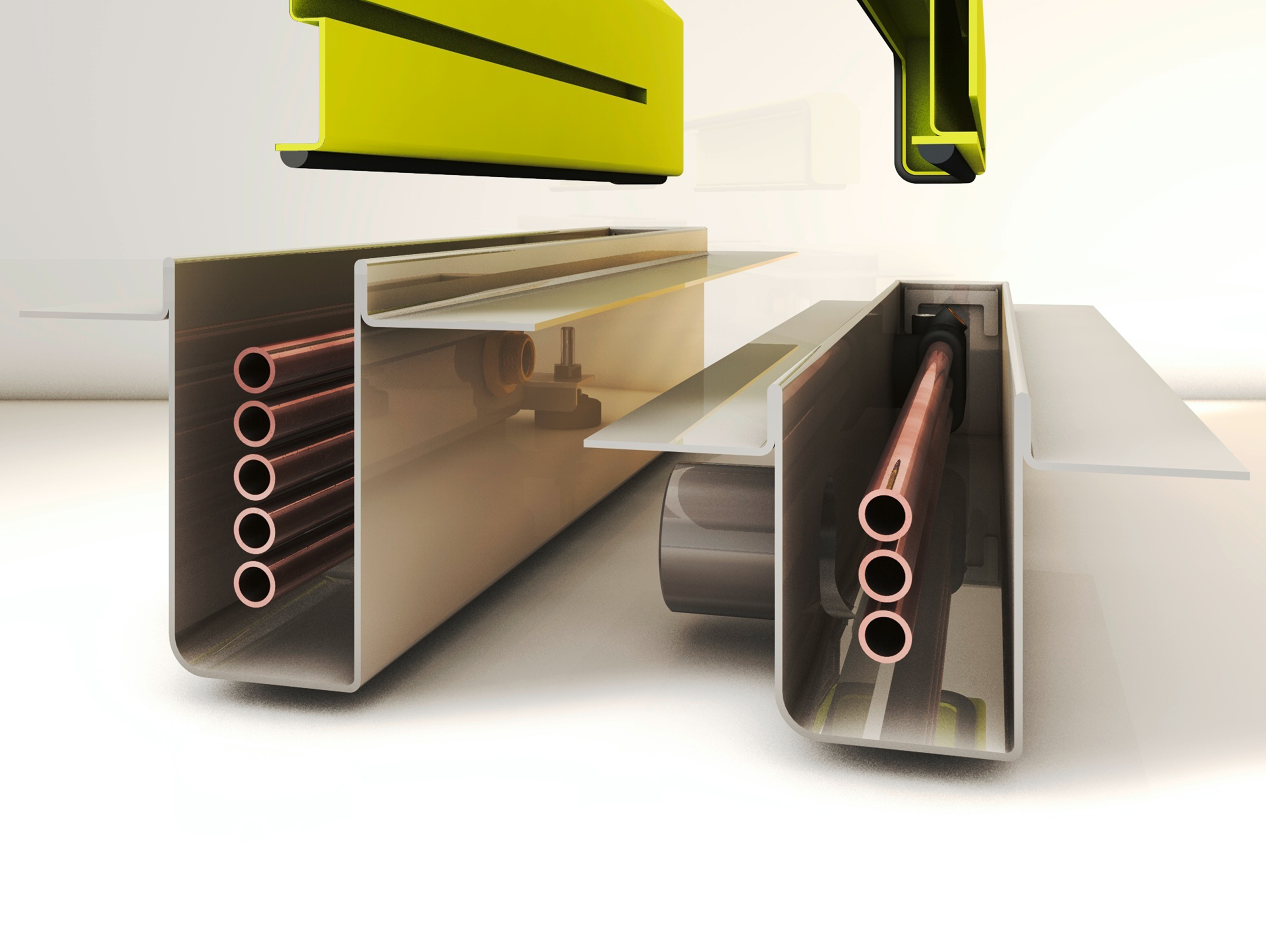Why it’s difficult to implement sustainable ideas
Bianca Sellnow • 26.03.2018
You are environmentally friendly, efficient and make long-term cost savings – but innovative solutions are only able to establish themselves slowly on the market. We ask: Why is this?
There are many exciting ideas for sustainable solutions in Switzerland such as the Joulia shower. It recoups up to 42 percent of the heat from the shower water used and in this way reduces the total energy requirement to heat up the water. In 2015 the product also won the Design Prize Switzerland in the capital goods category.
Why it still takes several years until the innovative shower can establish itself on the market, despite the award and customer requirement, is explained by Anja Borchart, Communications Manager at Joulia SA, as the result of the very conservative sanitary industry and the many people who need to be involved: «We have to convince architects, sanitary planners, fitters, traders and consumers. This large number of target groups already creates a few hurdles.»
Also a building project would be associated with enormous costs. As a result most builders are less prepared to take risks and tend to fall back on established products, even if they are less sustainable.
At Joulia SA they expect it to take at least three years before an invention can be implemented on the market. However, the company is not alone in following this path, as Borchart explains. «There are many agencies that are interested in promoting sustainable products financially. For example we have received support from the Technology Fund. This helps us enormously to bridge the time until the product has become established.» References and participation in pilot projects run by well-known institutions such as the energy self-sufficient apartment building in Brütten would also help.
Is Joulia therefore now the rule – or more of an exception? And what can be changed to promote sustainable innovations more effectively? We spoke to the Manager of the Economy and Innovation Department at the Federal Office for the Environment (BAFU), Dr. Sibyl Anwander:
BIANCA SELLNOW: Dr. Anwander, how difficult is it to successfully establish innovative products on the market?
DR. ANWANDER: It is particularly difficult to establish innovative products initially because they have to combat the inertia of habits. However, we are convinced that innovations make an important contribution to solving problems in the area of the environment and resources. This is why the Federal Government supports the development of innovative solutions until they reach market maturity via various instruments such as the promotion of environmental technology by BAFU and the programme for pilot, demonstration and beacon projects by the BFE.
B.S.: Is it harder for sustainable projects in Switzerland than abroad?
DR.A.: I don’t think that sustainable inventions become accepted more slowly in Switzerland than in other countries.

E-bikes and car-sharing were invented in Switzerland and the local market reacted to them very well.
Heat pumps, Minergie and organic agriculture are other examples of how the market reacts dynamically in Switzerland.
B.S.: However, the example of the Joulia shower shows that it can also take a while for new products to become established.
Dr.A.: The first version of the Joulia shower, where the entire shower tray had to replaced, could not be used flexibly. The second version is much better in this aspect and can be integrated by various sanitary equipment companies into their product range. Now the prices are still a bit high. It takes savings made over 5-10 years of showering to recoup the additional costs. However, the current market expansion should enable these prices to be reduced. This will then lead to the breakthrough.
In the meantime a second interesting innovation has emerged from Switzerland: The shower by Gjosa, a start-up from Biel, reduces water consumption by a factor of five through a new configuration of the water drops and promises the same shower experience with less water. Perhaps it would now make sense to combine both innovations.
B.S.: Are there constraints on investment in innovative solutions in this country?
Dr.A.: The traditional answer is the question about the price. A certain sales volume is required until production can be designed rationally and prices come down. Sometimes the Swiss market is simply a bit too small to bring about these large quantities. The example of solar panels shows: It required the involvement of large countries worldwide to bring prices down. Solar energy will become accepted worldwide in the long term via the price because in the final analysis it’s cheaper than everything else.
The other reason is information – how do customers, but also companies know which technological developments are new on the market, which will prove themselves and which actually bring ecological added value? This is why the Federal Government is promoting communication and exports in the field of Cleantech and is currently investigating the introduction of ETV, Environmental Technology Verification, a certification for particularly environmentally friendly technologies and products.
B.S.: Switzerland is following an ambitious energy strategy. However, we must also become much more energy efficient overall. Shouldn’t this give sustainable innovations a much better opportunity to establish themselves quickly on the market? And why perhaps are they still not actually achieving it?
Dr.A.: They are achieving it. They just need to be given a little time. The psychological strain is not yet great enough everywhere. In many places one can also still earn good money with old technologies, for example electricity from coal, mobility with petrol or diesel and so on. But suddenly one is overtaken and then it’s too late to react. It’s all about anticipating developments, which come about anyway from a historical perspective and can no longer be halted, such as the electrification of mobility or the decentralisation and smart control of energy generation and storage.
B.S.: In Switzerland we have a relatively high proportion of start-ups and innovators such as at ETH Zurich. What would have to change so that they find it easier to bring their ideas onto the market and establish them there?
Dr.A.: Four years ago the Federal Government created a new instrument for Cleantech companies, the technology fund, which provides guarantees for loans taken out from the banks. This facility is primarily used by start-ups. It supplements the activity of the venture capital scene, which is still in its infancy in Switzerland. However, a lot is going on and the situation is developing increasingly positively.
Relative to other countries, there are a lot of start-ups in Switzerland, which also survive in the longer term and this is continually confirmed in international comparisons such as the competitiveness index. As the study of Cleantech Alps «Overview of Cleantech start-ups» shows, the scene in Switzerland is extremely vibrant and is developing rapidly. This is where the two shower innovations, Joulia and Gjosa, also feature.
How difficult it is for an innovation to become established, depends to a large extent on the product itself, but also on the market, the references and opportunities to take part in pilot projects. But however much closer the move to alternative energy sources comes and however much more institutions in Switzerland support inventors, the easier it will be for sustainable ideas to be successful more quickly in the future.
PHOTOGRAPHY: Design Preis Schweiz



